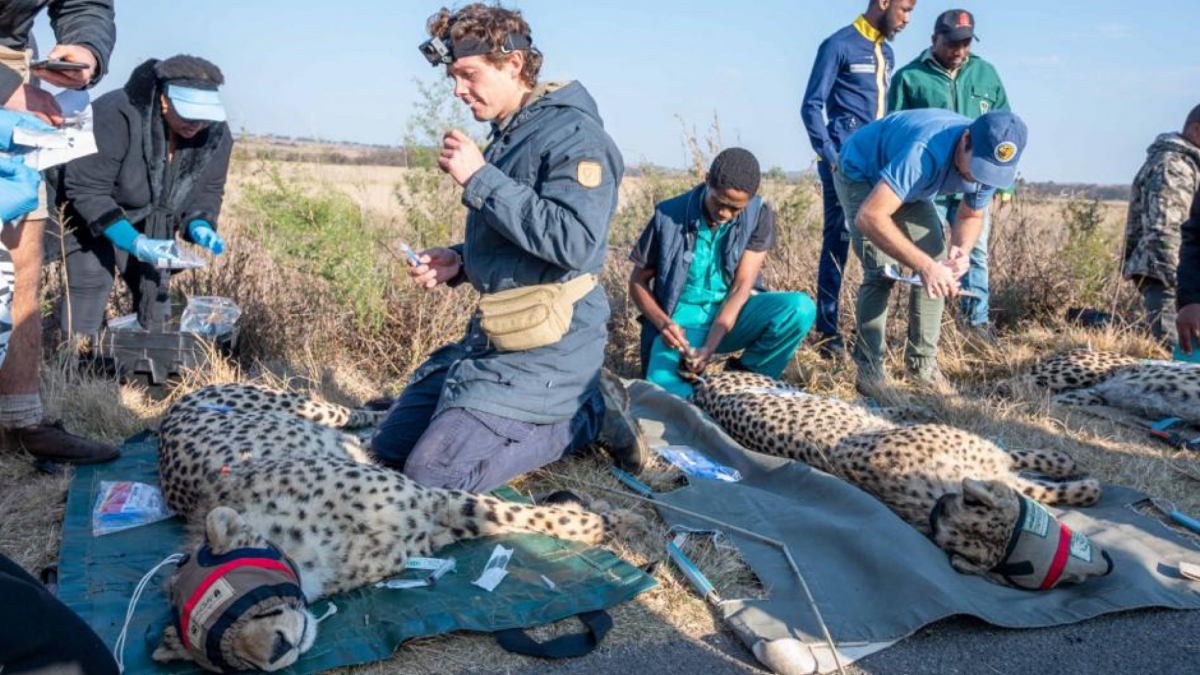Rietvlei Nature Reserve’s latest cheetah offspring are off to new hunting and playing grounds.
The current litter of five young adults were born to a female cheetah called Njozi. Njozi was relocated from the Garden Route Game Lodge to Rietvlei Nature Reserve in August 2020. She has remarkably reared her first litter, comprising four males and one female, to independent age.
The four males were relocated on 28 June 2023. The female will spend a little more time with her mom since males stick together and hunt together, but females have to be able to cope by themselves. Rietvlei Nature Reserve provides a safe space for wild cheetah conservation. Here, young cheetahs can perfect their hunting skills without pressure from other predators.
Two males will be relocated to Nyosi Game Reserve in the Eastern Cape, two males will be relocated to Tshukudu Game Reserve in the Lowveld in Limpopo and the female will be relocated to Makutsi Game Reserve in the Lowveld in Limpopo.
The City of Tshwane is part of the Cheetah Metapopulation Project, coordinated by The Metapopulation Initiative, and entails the management of approximately 467 cheetahs on 61 reserves in Southern Africa and India. The project is supported by a multitude of partners and stakeholders, including government conservation authorities, researchers, national parks, provincial conservation areas and private reserves. The principal goals of the project are to maintain the genetic and demographic integrity of the cheetah metapopulation and to increase the resident range of wild cheetahs across their historical distribution range.
Cheetahs have performed exceptionally well at Rietvlei Nature Reserve ever since its inception of the programme, with 13 surplus wild cheetahs made available for cheetah range expansion efforts in Zambia (Bangweulu), Malawi (Majete), Western Cape (Roam), the Waterberg (Marakele), the Lowveld (Selati), the Limpopo Valley (Mapesu), North West (Madikwe), Gauteng (Dinokeng), the Zululand region of KwaZulu-Natal (Zimanga and Mkuze) and the Northern Cape (Rogge Cloof).
Njozi’s offspring needed to be removed to –
- prevent inbreeding with their mother and their siblings;
- prevent cheetah overpopulation at Rietvlei Nature Reserve; and
- mitigate unsustainable levels of cheetah predation on the remaining prey species at Rietvlei Nature Reserve.
After the removal of the young cheetahs, efforts will be made to supplement the Rietvlei Nature Reserve’s blesbok population to ensure that a male cheetah can be brought in to join Njozi at Rietvlei Nature Reserve. This will ensure that Rietvlei Nature Reserve can continue with wild cheetah conservation efforts in Southern Africa.

